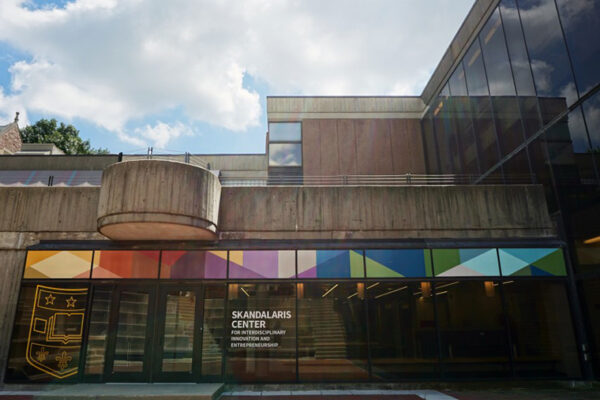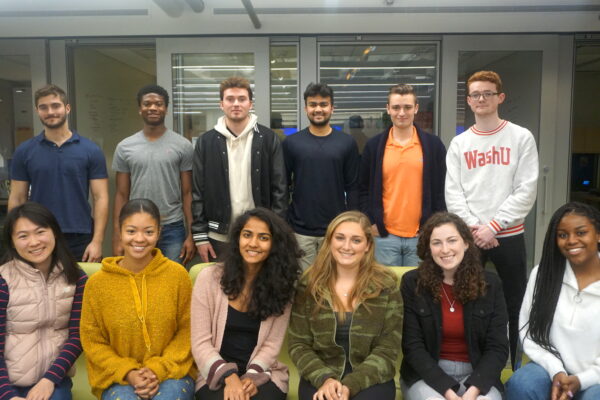Think about all the ideas that have impacted our lives—where did they come from? What if they were never shared? How did people know they were “good” ideas at the time?

Most people think the best startups come from a spark of genius that gets ignited and voila—magically a company is created. Dig deeper, and we learn that Edison famously tried thousands of attempts to perfect the lightbulb and many companies pivot when their current products or offerings cannot thrive (maybe not even survive) in the marketplace. This does not mean that the first ideas or plans were worthless—they are integral investigations on our journey as creative problem solvers. Each idea creates new questions and discoveries to be used now or called back upon later in our evolution.
Where do ideas come from?
Ideas are generated from our environment and the conditions and challenges we see and face. Three key times I hear from students with new ideas are: early in the first semester of their first year; after they participate in a study abroad program; and after they have their first internship. What do these have in common? In each instance they are thrown into a dramatically different situation than what they have been used to—a new country, a new campus, a first crack at the nine-to-five grind—and most importantly, they meet new people. These jolts to students’ way of life force them to think differently than they had before.
To have more, and potentially better, ideas we need to widen our aperture and exposure to people and situations different than our own. While the above three examples are common times when new ideas are generated, we can do more as individuals, and without leaving the country, to increase the likelihood that we will have new ideas.
We have a wealth of activities and programs on campus that are easily accessible by students, faculty, and staff. Take time to choose something unfamiliar to participate in—a lecture in a different academic discipline, a poetry slam, or (small plug) an IdeaBounce® with the Skandalaris Center.
How do I know if I have a good idea?
The only thing that matters more than the idea itself is the sharing of that idea. Too many opportunities are missed while ideas are sitting on a shelf, and people are often too scared that someone is going to “steal” their idea if it is shared. When this happens, we advise entrepreneurs to keep their idea description high-level at first, then open up more with the people who are truly interested and can help them. Since our ideas come from our environment and we are not living in a vacuum, the same experiences and problems you encounter are affecting other people at this exact moment. There are many historical cases of people being in line to patent the same technology at the same time!
The best ideas solve big problems, and those advancing the idea deeply understand their customer’s pain points. Take the time to talk with potential customers—you’ll find out if what you are developing is something they want and importantly how many people might actually be interested in what you are developing. I often hear “there’s no competition for this” which means you are dealing with one of the biggest competitors of all time—the status quo.
The best ideas solve big problems, and those advancing the idea deeply understand their customer’s pain points.
– II Luscri
Disabused of the “lone genius” concept, seek out opportunities to present your idea and get feedback from people who are different than you. At IdeaBounce® 10-15 people have a chance to deliver a two-minute pitch—they say who they are, what they are working on, where they are at, and where they need help. What follows is a friendly networking session where the audience shares positive feedback and constructive criticism over food and drinks. If you don’t have an idea, come and connect with those who do and see what new thoughts come to you.
Ideas matter; don’t be afraid to share yours.
Two final thoughts: Linus Paulding won a Nobel Peace Prize in Chemistry; so if you don’t believe me, remember his quote “the best way to have a good idea is to have a lot of ideas.” And secondly, I do not know who originally said “the day before something is a breakthrough, it’s a crazy idea,” but if there was ever a time and place for crazy ideas, it is now, at Washington University. Come see us.



